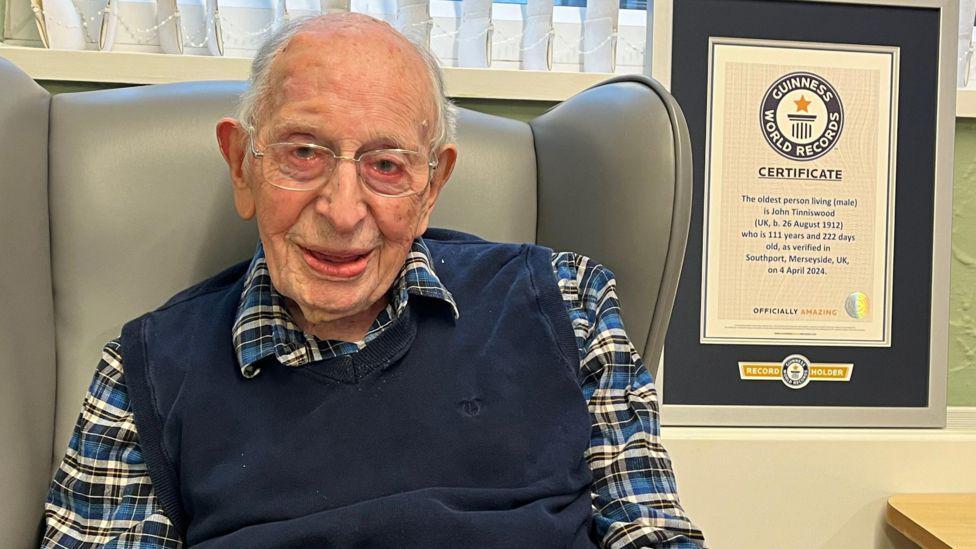“No special secret.”
This was the response of John Tinniswood, the world’s oldest man, when he was asked on his birthday how he had reached 112 years of age.
Born on August 26, 1912, in the city of Liverpool in north-west England, Tinniswood told the Guinness Book of Records that he had “not the slightest idea” why he had lived so long.
The centenarian – who lives in a nursing home in Southport, near his home town – became the world’s oldest person in April when Juan Vicente Pérez Mora, the Venezuelan who had previously held the record, died aged 114.
Tinniswood recalls being just 2 years old when World War I broke out, and having just turned 27 when World War II began.
As a young man he worked in an administrative position with the Army Pay Corps, locating stranded soldiers and organising food supplies, and is now the world’s oldest surviving Second World War veteran.

He met his wife, Blowden, at a dance in Liverpool, and they married in 1942.
Their daughter Susan was born in 1943 and the couple enjoyed 44 years together before Blowden died in 1986.
After the end of the war, Tinniswood worked as an accountant for Shell and BP before retiring in 1972.
“Fish and chips on Fridays”
Tinniswood said he was “quite active as a young man” and walked “a lot” but believed he was “no different to other people”.
“You either live long or you live short, and there’s not much you can do about it,” he added.
And he also pointed out that, beyond eating a portion of fish and chips (fish & chipsa typical British dish, especially in coastal towns and cities) on Fridays, did not follow a particular dietary regime.
“I eat whatever they give me and everyone else does the same,” she says. “I don’t have a special diet.”

Useless question
While it is tempting to ask not just Tinniswood but anyone who has ever crossed the 100-year mark how they did it, many experts consider this to be nonsense, as we will gain no valuable information from their answers.
As explained in an article by The Conversation Bradley Elliott, Professor of Human Physiology and a researcher in the field of ageing biology at the University of Westminster, says examples such as Tinniswood illustrate the phenomenon known as “survivor bias”.
This is the “cognitive and statistical bias that occurs when counting only those who are close to being counted, but ignoring those who have not ‘survived,’” Elliott notes.
“There are phenomenal examples of older human beings, many of whom are faster, fitter and stronger than me on many measurements we do in the lab, even though they are twice my age,” Elliott continues.
“While we know that lifelong exercise is associated with exceptionally good health in old age, we can’t say directly that one thing causes the other.”

“It could be that highly active people are protected against chronic diseases such as cancer, diabetes and heart disease. But it could also be that these people remain active in old age because they have not suffered from cancer, diabetes or heart disease earlier in their lives,” explains the expert.
That is, correlation does not mean causation.
And while at the population level there are many factors that can improve our health and life expectancy – including improvements in healthcare and hygiene, as well as a healthy lifestyle – at the individual level there are many other causes, including luck.
*With contributions from Gemma Sherlock of BBC News and PA Media.
